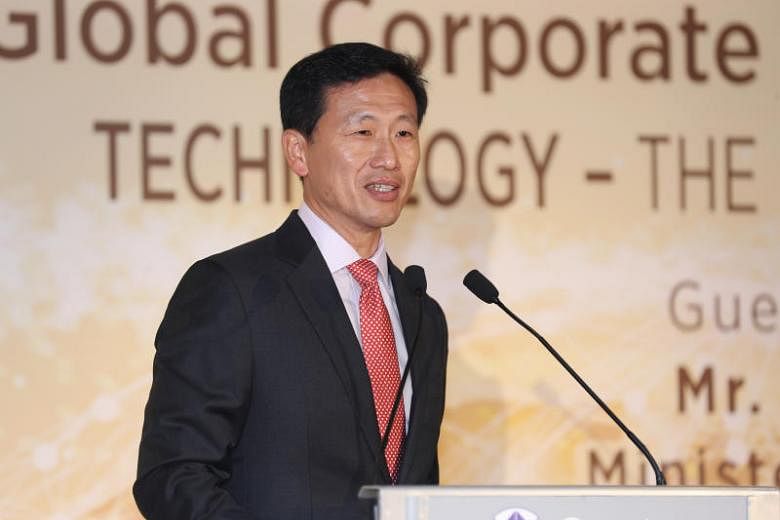SINGAPORE - Rules and regulations on corporate governance need to cater to technological advances and be risk-focused, said Education Minister Ong Ye Kung on Monday (Sept 23).
They should also take into account the stage of development of the industry, as that affects the extent to which they are general or prescriptive, said the minister, who is a board member of the Monetary Authority of Singapore (MAS).
While not synonymous with corporate governance, rules and regulations are a key mechanism for achieving better outcomes, such as protecting the interest of minority shareholders, encouraging innovation and seizing opportunities, he said.
Hence, the central question is how to bring about rules that are good for the long term, he said.
"How we enact and enforce rules and regulations become an exercise of artistry, not just to tackle problems here and now, but to nurture a stronger and better culture for corporate governance.
"Hence, rule makers and enforcers, like companies, also need to take a long-term view," he said at the start of the 10th annual Corporate Governance Week, organised by the Securities Investors Association Singapore (Sias). The series of conferences, forums and workshops on the theme of leveraging technology for corporate governance runs until Oct 1.
Mr Ong cited three considerations when enacting rules:
One, they need to be technologically neutral so that they take into account tech advances that disrupt industry and market activities, he said at the event held at Suntec City Convention Centre.
To drive home his point, he referenced the Securities and Futures Act, which regulates the provision of securities and derivatives activities not only at brick-and-mortar facilities but also on fully electronic platforms.
Two, rules need to be differentiated according to the risks posed by activities or entities.
Finally, the approach to rule-setting and review must fit the times.
Typically, there are two approaches to rule-making, he noted.
One is to make the rules more detailed, specific and prescriptive to address complexities and the other is to acknowledge that rules cannot address all scenarios and so, to focus instead on the spirit and objective of the rules.
He pointed to the move last year when the Government streamlined further the Singapore Code of Corporate Governance and made it more principle-based, because it judged the industry had become more aware of the objectives and spirit of the code.
Currently, the Singapore Exchange (SGX) is also reviewing the practice of quarterly reporting, a move also being carried out in the United States.
While such frequent disclosures provide more information for external investors, it may also result in an over-emphasis on short-term results at the expense of long-term strategies. This imposes high compliance and cost burdens that are not equivalent to the benefits, said Mr Ong.
Last year, SGX put out a consultation document on the issue and is now considering feedback on it.
Mr Ong also said that more can be done to develop good corporate leaders and to better educate investors, he said.
"Discerning investors who can tell which companies are deserving of their hard-earned monies, which company offers a better risk-return trade off, will spur improvement in the standard of corporate governance."
He said companies should be less preoccupied with adhering to regulations and more focused on striving for good outcomes.
"Good corporate governance does not just benefit a company and its stakeholders. If it is widely practised, it leads to an atmosphere of collective trust in Singapore companies. This is important because it will strengthen the Singapore brand and this will open up more opportunities for everyone," Mr Ong added.
The need to maintain trust between companies and stakeholders was also underlined by Sias chief executive and president David Gerald.
His association's research shows remuneration committees need to be more proactive in encouraging greater transparency on policies and the link between pay and performance, he said.
Companies can also do better at informing shareholders about their business models and the opportunities and challenges they are facing, he added.
With a more volatile future, a slowing economy and rising distress levels, "companies must communicate clearly their position and, especially during bad times, engage more with their stakeholders".
"We will be taking more proactive steps to seek better communication and engagement," he said, without elaborating.


